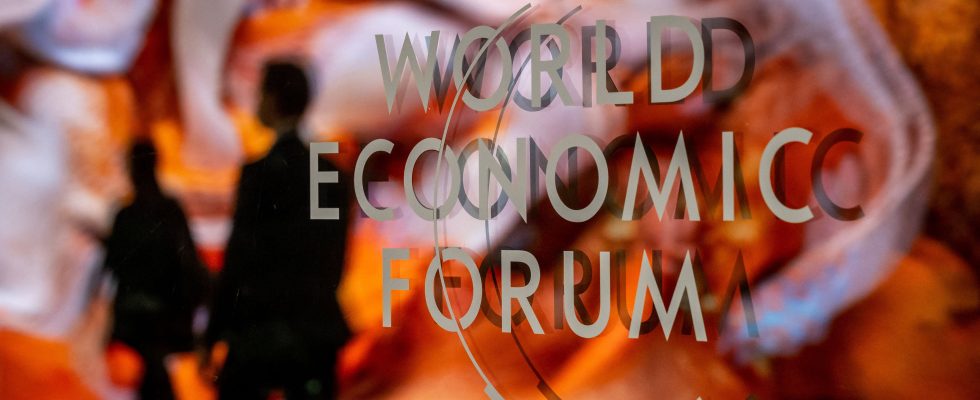“The outlook is very bleak.” During a press conference in London this Wednesday, the director general of the World Economic Forum, Saadia Zahidi, sets the tone. THE “Global Risks Report” (global risks report) was published on January 10, a few days before the launch of the Forum which will be held in Davos, Switzerland, from January 15 to 19.
Over the next two years, voters are expected to choose new leaders in major economies, including Bangladesh, India, Indonesia, Mexico, Pakistan, the United Kingdom and the United States. Thus, nearly three billion people will go to the polls between 2024 and 2025.
“The widespread use of misinformation [une information fausse mais diffusée involontairement] and disinformation [information fausse diffusée volontairement]and the tools allowing their dissemination, can undermine the legitimacy of newly elected governments”, warns the “Global Risks Report”, also warning of the dangers of artificial intelligence.
If the risk of false information does not appear “at all in the top five” of the main concerns for the United States, “for India, it is the number one risk”, affirms Saadia Zahidi. And the consequences will go well beyond the political sphere: “the resulting unrest could range from violent demonstrations and hate crimes to civil clashes and terrorism,” the report specifies.
Cost of living and global warming
Added to this, this year, are “concerns about a persistent cost of living crisis,” notes the Forum in a press release. The cause, in particular, is the climatic phenomenon called El Niño, inducing global warming. Its impacts on food production and logistics could prove costly, for consumers and producers alike.
Moreover, in the longer term, extreme weather conditions and critical changes in Earth’s environmental systems become the greatest concern.
The report is “very different from last year, where there was still optimism while this year, in the longer term, it is pessimism”, noted Saadia Zahidi. Indeed, according to the “Global Risks Report”, the majority of respondents (54%) in September 2023 anticipate a certain instability and a moderate risk of global catastrophes. 27% expect greater turbulence and 3% expect global catastrophic risks to materialize in the near term.
Blinken and Herzog present at the Forum
Saada Zahidi believes, however, that “the future” is “largely in our hands” and in those “of decision-makers”. This is evidenced by the current conflicts between Russia and Ukraine, tensions in Taiwan but also in the Middle East, where Israel and Palestine have been clashing since the Hamas attack against the Jewish state on October 7.
US Secretary of State Antony Blinken and Israeli President Isaac Herzog will attend the Forum in Davos, where the Israeli-Palestinian conflict will be one of the major topics.
In addition, French President Emmanuel Macron – who has not visited the Forum since 2018 -, the new ultra-liberal Argentine head of state Javier Milei, Chinese Prime Minister Li Qiang and the President of the European Commission Ursula von der Leyen will be among the more than 60 heads of state and government present.
The report, produced in partnership with Swiss insurer Zurich Insurance and Marsh McLennan, draws on the views of more than 1,400 global risk experts, policymakers and business leaders surveyed in September 2023. Among Two-thirds expect a multipolar or fragmented order to take shape over the next decade.
